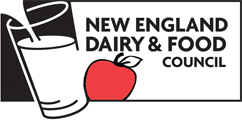Introducing foods into your baby’s diet is an exciting time in their growth and development. With hundreds of baby food options at the grocery store, as well as mommy blogs and other online resources at your fingertips, deciding what foods to introduce to your baby and when can be overwhelming. When it comes to dairy, we’ve got you covered!
In this blog, you’ll learn:
- What the appropriate age is to introduce dairy to infants (infants being 0-1 years old).
- What dairy products and amount is recommended for infants.
- Why full-fat dairy is often recommended for infants and toddlers under the age of two.
Getting Ready for Foods
For the first six months of life, the American Academy of Pediatrics (AAP) recommends that babies receive nutrition solely from breast milk. For non-breastfed babies, iron-fortified formula will provide the necessary nutrition your baby needs for healthy growth and development.
Around the six-month mark, there are several signs that may indicate your baby is ready to add semi-solid and semi-liquid foods to their diet. Here’s what you should look for:
- Holding their head up and maintaining good control while sitting in a high-chair or feeding chair
- Opening their mouths to receive food that is being fed to them (they may also be interested in your food!)
- Moving food to the back of their mouths to swallow (if your baby pushes the food out of their mouth completely, they may not yet be able to move it to the back of their mouth or it may be too thick)

Trying Dairy for the First Time
In addition to other soft, solid foods that you are introducing to your baby, you can also try dairy. There is currently no evidence to suggest that waiting to introduce foods that are common allergens, such as eggs, fish, or dairy, beyond 4-6 months of age will prevent the development of a food allergy. For more information on introducing possible allergenic foods to your baby, read these recommendations made by the AAP.
Plain whole milk yogurt and cottage cheese are two dairy foods that can be introduced between 6-12 months old. With their soft consistency, these foods can be spoon fed to your baby. As a guideline, ¼ to ½ cup of whole milk yogurt or cottage cheese is the recommended serving size for ages 8-12 months.
Once your baby has started to eat finger foods they may be ready to try very small pieces of cheese. About a half ounce is an appropriate serving size.
The AAP recommends waiting until your baby has celebrated their first birthday before trying plain, whole cow’s milk. After about a year, their digestive systems have had more time to develop and can better break down cow’s milk. A serving size of milk for very young children is about a ½ cup. Take a peek at our table below for a short summary on age-appropriate dairy foods and their serving sizes.

Whole Fat and Reduced Fat Dairy—When and Why?
Pediatricians recommend that in most cases, children under the age of two should consume whole fat dairy products. Whole milk can help children under two maintain their weight and absorb fat soluble vitamins, like vitamin D. Also, dairy is a source of nine essential nutrients including protein, vitamin D, potassium, calcium, phosphorus, vitamin A, vitamin B12, niacin, and riboflavin. An essential nutrient is something our bodies require, but that we cannot make ourselves; it must be obtained through the diet. Choosing nutrient-rich dairy foods is one way to get more essential nutrients throughout the day. The AAP teamed up with the National Dairy Council to develop this handout that provides further recommendations for introducing foods to your child.
More Information:
American Academy of Pediatric’s Blog: HealthyChildren.org


